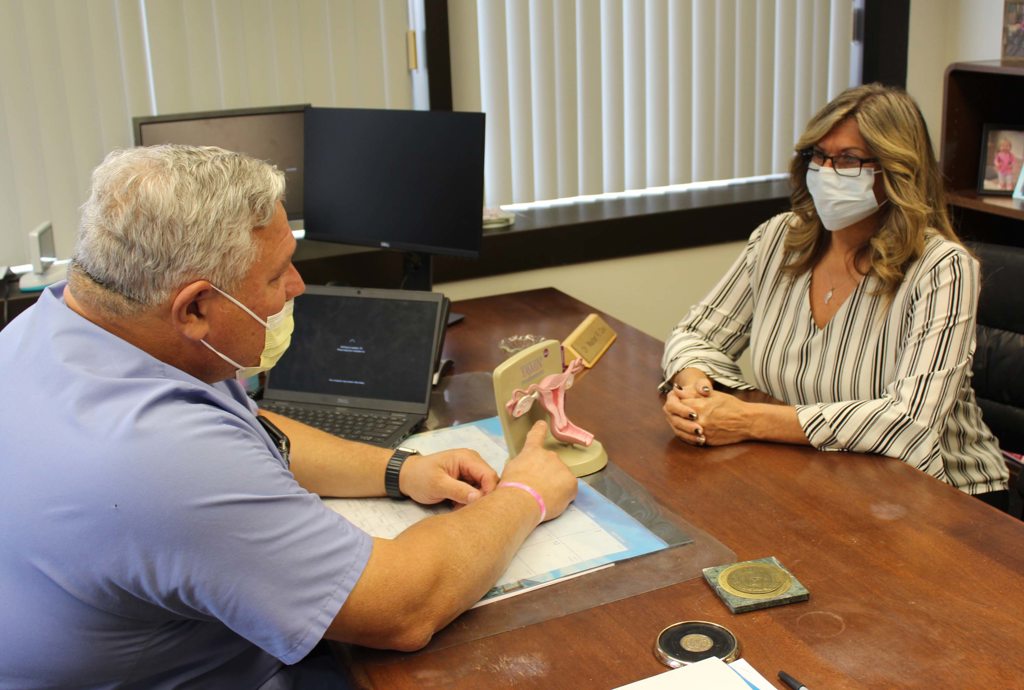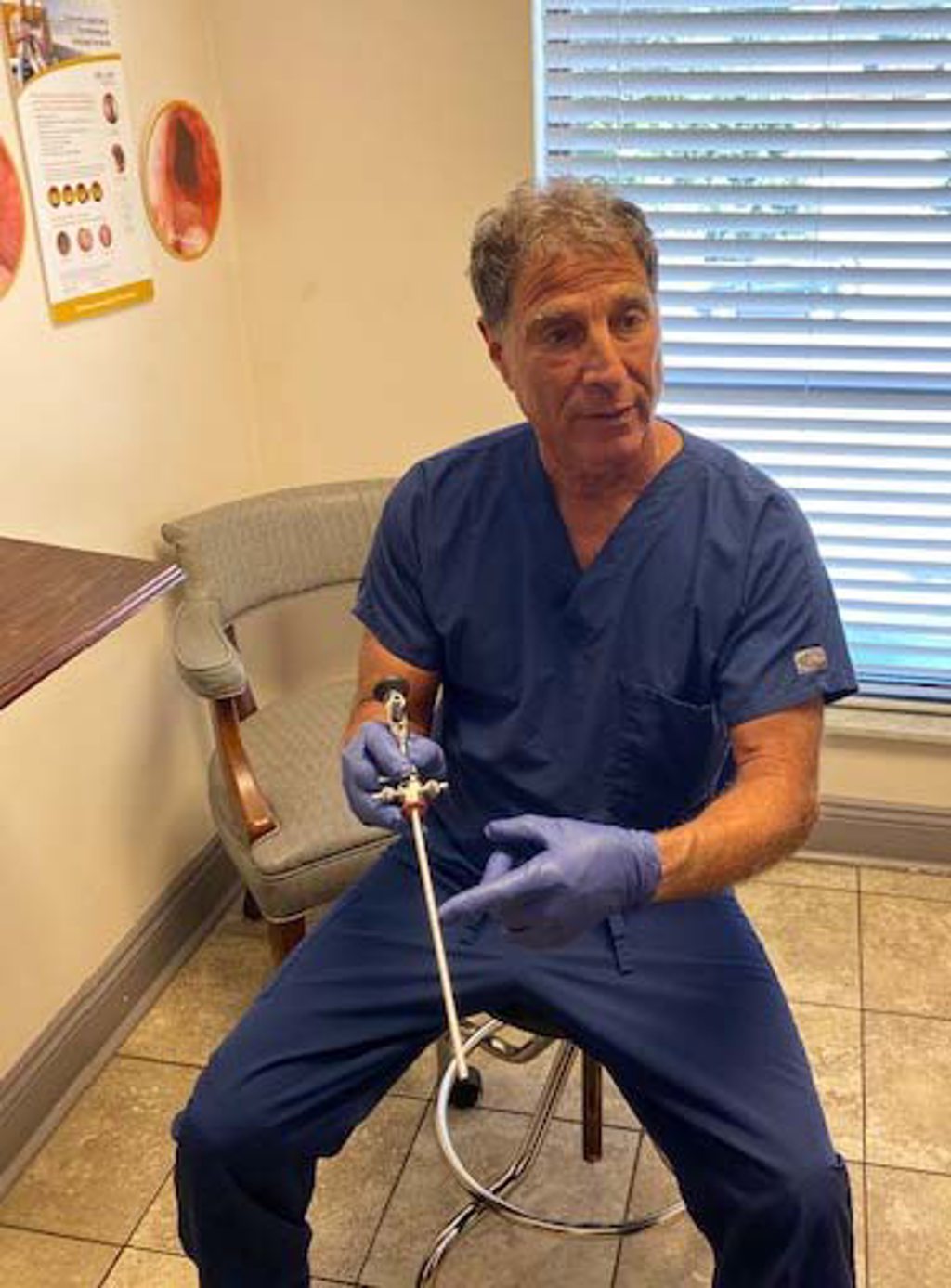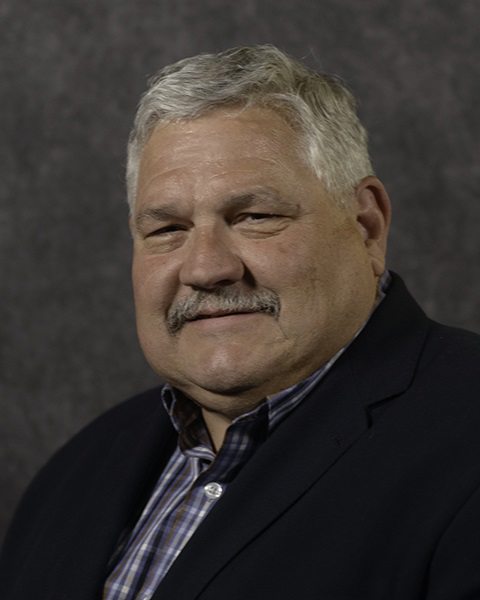Innovations in Gynecological Care
Penn Highlands Healthcare Offers Innovations in Gynecological Surgeries
Two Penn Highlands Healthcare gynecologists in Southwestern Pennsylvania are performing innovative surgeries.

Hysterectomies
There was a time that if a woman needed a hysterectomy she could expect a hospital stay followed by an at-home recovery time of four to six weeks. Now, thanks to vaginal natural orifice transluminal endoscopic surgery (vNOTES), a new minimally invasive procedure performed by Walter R. Cox, MD, at Penn Highlands Gynecology (formerly known as Valley Women’s Health) women can resume most normal activities within days.
In September 2022, Debbie Bachinski, of Monessen, Pennsylvania, was one of the first women to benefit from this new procedure.
“When I saw Dr. Cox in his Monongahela office for the first time, my routine pap test came back with significant changes over previous tests,” explained Mrs. Bachinski. “Dr. Cox performed a colposcopy and removed some cervical polyps in his office. They were biopsied and came back ‘all clear.’ To avoid any further complications, Dr. Cox recommended a hysterectomy performed with the new procedure.”
The vNOTES procedure is an advanced gynecologic technique that provides many benefits to female patients, such as shorter hospital stays, less postoperative pain, no visible scars and a faster recovery time.
Dr. Cox is one of the few surgeons in Southwestern Pennsylvania who has been specially trained on this innovative approach to hysterectomies.
“I am continually seeking opportunities and training to offer the most advanced techniques to my patients,” said Dr. Cox. “Traditional vaginal hysterectomy is the approach of choice but the surgeon cannot always remove the tubes and ovaries this way. Historically, that would mean a larger abdominal incision, and recently smaller abdominal laparoscopic incisions. vNOTES allows me to access the abdominal area — the uterus, fallopian tubes and ovaries — with the utmost precision and visualization without making abdominal incisions.”
The vNOTES technique uses a vaginal surgical access route. A device is inserted into the vagina which allows the abdomen to be slightly inflated with carbon dioxide to give the surgeon the space needed to see and operate. A high-definition camera and specialized instruments are inserted through the device, which enable the surgeon to perform the hysterectomy successfully.
“My patients have been able to leave the hospital the same day they had their vNOTES hysterectomy,” said Dr. Cox. “They have appreciated the fact that they can return to their normal activities more quickly. This is especially beneficial to young patients undergoing risk-reducing surgery due to a genetic predisposition to ovarian cancer.”
“The experience was unbelievable,” said Mrs. Bachinski. “I didn’t have bleeding or any of the other side effects commonly experienced with a hysterectomy. I had major surgery but it didn’t feel like major surgery.” In fact, I do not have any scars either. From the first time I met Dr. Cox in July, he made me feel at ease. I felt as though I knew him for a long time and could trust him,” added the mother of three.
Surgical societies see the benefits of minimally invasive vaginal hysterectomy. The American College of Obstetricians and Gynecologists and the American Association of Gynecologic Laparoscopists have recommended vaginal hysterectomy, whenever possible as the approach of choice.
“The vNOTES is another surgical innovation that I have available to me to enhance patient satisfaction and outcomes,” added Dr. Cox.
Dr. Cox sees patients at Penn Highlands Gynecology with offices at Penn Highlands Mon Valley, 1163 Country Club Road, in Monongahela, and at the Penn Highlands Mon Valley HealthPlex, 800 Plaza Drive, in Rostraver Township. To schedule an appointment, call 724-258-2229.

Pelvic Organ Prolapse
How far would you travel for a minimally invasive medical procedure that is performed by an expert in the field? Betty Milburn traveled 32 miles from her home in Derry, Pennsylvania to Penn Highlands Connellsville in Fayette County Pennsylvania to have Michael Pelekanos, MD, perform the EnPlace procedure to correct her pelvic organ prolapse.
“I was in a great deal of discomfort,” said the 72-year old mother of four. “I felt bloated and had to make frequent trips to the bathroom.”
Mrs. Milburn’s family practice physician suggested that she see Dr. Pelekanos who performs the mesh-free minimally invasive EnPlace procedure at Penn Highlands Connellsville. Dr. Pelekanos is a urogynecologist with Penn Highlands Healthcare, which is one of only a few health systems in the United States offering the unique, Food and Drug Administration-cleared procedure. In addition, he is one of only six instructors in the U.S. that teaches the EnPlace procedure.
Pelvic organ prolapse occurs when the muscles and tissues supporting the pelvic organs (uterus, bladder or rectum) become weak and drop or press into or out of the vagina.
“Pelvic Organ Prolapse (POP) is a debilitating disease. Many women are uncomfortable talking with their doctor about their symptoms until the discomfort becomes too great,” said Dr. Pelekanos. “POP is very treatable,” he continued. “The EnPlace approach is an advanced procedure for fixation of pelvic floor ligaments.”
Mrs. Milburn had the procedure to re-suspend her uterus thus preventing the need for a hysterectomy. Alice Burrell, an 80-year-old mother of four and grandmother of five from Plum Borough, Pennsylvania, had the procedure to correct a bladder prolapse.
“I’m not fond of going to the doctor so I lived with the discomfort of my bladder prolapse for nearly two years until my doctor suggested that I see Dr. Pelekanos,” explained Mrs. Burrell. “I had my procedure nearly a year ago and I didn’t experience any pain — in fact almost immediately I felt 100% better.”
EnPlace can relieve pelvic organ prolapse without mesh or a biologic implant. The procedure is performed with almost zero cutting of the vaginal wall and without general anesthesia. EnPlace takes less than 45 minutes in an outpatient setting.
“We are excited to offer this approach to the women of Southwestern Pennsylvania. It is helpful to have expansion of bio-technology in our collection of resources so that we can help women rapidly resume their normal lifestyle activities,” said Dr. Pelekanos. “Our EnPlace enables patients to go home the same day and are back to work or normal activities within 48-72 hours — which is amazing!”
Dr. Pelekanos is on staff at Penn Highlands Connellsville. His practice, Penn Highlands Urogynecology, is limited to gynecology, urogynecology, infertility surgery, endometriosis surgery and routine annual women visits. Dr. Pelekanos sees patients at 700 Park Street, Suite 6, in Connellsville, Pennsylvania and 1275 South Main Street, Suite 205, in Greensburg, Pennsylvania. For more information, call 724-603-2671.


